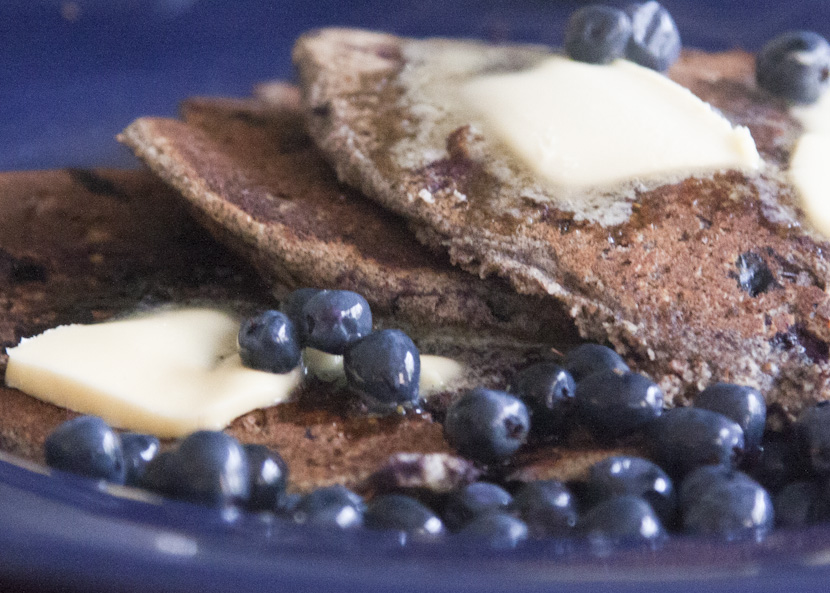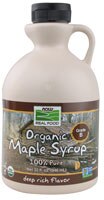Before I’m accused of backtracking on 50,000+ times of saying “sugar is bad,” let me just say it again: Sugar is bad. Now that I’ve gotten that out of the way… let me also say… not all sugars are created equal. Maple syrup health properties are very interesting.
Alright, why is sugar so bad…
 There are some sugars that just should never, ever be consumed. Cane sugar in any form (raw, turbinado, concentrated juice, organic or otherwise…) and corn sugar (also known as high fructose corn syrup).
There are some sugars that just should never, ever be consumed. Cane sugar in any form (raw, turbinado, concentrated juice, organic or otherwise…) and corn sugar (also known as high fructose corn syrup).
Why? Because they create an immediate inflammatory response in the body that is part of the blood sugar disregulation behind a variety of chronic diseases including diabetes, heart disease, obesity, kidney failure, mood/emotional problems and 143 health problems caused by sugar you really should read.
Let’s face it, 150 pounds of sugar per year—the average amount consumed by every American—is an awful lot of sugar. Think we can all agree that this is too much.
Take these two key anti-inflammation steps:
- Cut back generally on all sugars and carbohydrates and you will enjoy a new level of health and energy; and,
- For those rare times when you want a desert or something a little sweeter, choose your sugar wisely.

Nutrition and health research has long understood the antioxidant properties in berries and certain tree fruits. As well, despite their sweetness, absent are the health problems seen with corn and cane sugar. Why? Turns out these whole foods also have other compounds that are beneficial for health and even change how the sugars act in the body.
And then there is real, bona-fide Grade B or darker maple syrup (don’t forget the buckwheat pancakes!). Grade A maple syrup is very refined, far more expensive, and not the beneficial food we’re talking about.
Recently, March 2010, University of Rhode Island researcher Navindra Seeram presented his discovery that maple syrup contains 20 compounds that are beneficial for health. A year later, his continued research discovered 34 more, five of which have never been found in nature before.
“I continue to say that nature is the best chemist. In our laboratory research we found that several of these compounds possess anti-oxidant and anti-inflammatory properties, which have been shown to fight cancer, diabetes and bacterial illnesses.” —N. Seeram, PhD
A most interesting finding coming from diabetes research is that one group of compounds found in maple syrup, the beneficial anti-oxidant compounds called “phenolics”, inhibit two of the enzymes that break down carbohydrates resulting in an increase in blood sugar. This makes the whole food benefits of maple syrup very relevant to anyone trying to control their blood sugar, and especially Type 2 diabetes management.
So is maple syrup healthy in any amount? Is maple syrup my sweet-tooth panacea? NO!
Please keep in mind that too much of any sugar or carbohydrate will elevate blood sugar—this leads to other inflammatory processes like weight gain, gout, arthritis, early aging, and more… All sugars and starchy or cereal grain carbohydrates elevate blood sugar. In fact, there is very strong research that associates high carbohydrate diets with obesity, diabetes, Alzheimer’s, depression and cardiovascular disease—and quite a few that go on to show causation.
Be careful with elevated blood sugar.
Elevated blood sugar is bad—it links the sugar molecules to everything protein making them into inflammatory molecules (technically these are appropriately called AGEs for the chemical reaction involved = Advanced Glycosylation End Products – sorry). W extra sugar moleculse are linked (gycosylated) to proteins, the end product is non-functional, brittle, and if they are part of your skin, blood vessels or anywhere else think aging and wrinkles, pain.
Blood sugar is very carefully controlled to not go too high or too low as both situations are extremely toxic and unhealthy. To control the level of blood glucose, insulin is released to moves the blood glucose into your cells. Your cells now have to use the glucose for energy rather than their fat stores (that’s right, they stop burning fat). Not only that, any glucose that is not used for immediate energy needs is now converted to fat and stored in the fat cells and other tissues. This happens even on a low-calorie, high carbohydrate diet—in other words, a person on a 500 per day low calorie, high carbohydrate diet may lose weight but they are losing muscle mass and gaining fat mass. Interesting.
As your body loses its ability to regulate blood sugar that spike in insulin can cause blood sugar to become too low. This blood sugar roller-coaster can mean low energy, fatigue and an emotional roller-coaster—one which is usually solved by, you guessed it, a “quick pick me up” sugar. And the cycle repeats.
Daily recommendations for total carbohydrate intake remain 130 grams for a healthy person and 80 grams or less for anyone on a weight loss regimen. One tablespoon of real maple syrup has 13 grams of carbohydrate. Keep that in mind.
Within the daily carbohydrate guidelines, maple syrup (and of course fresh fruit) are better choices to satisfy that sweet tooth. And with 54 beneficial compounds as well as certain vitamins and minerals, maple syrup is hardly “empty calories” as are so many of the other refined sweets.
[contact-form-7 id=”1851″ title=”Question form blog page”]







